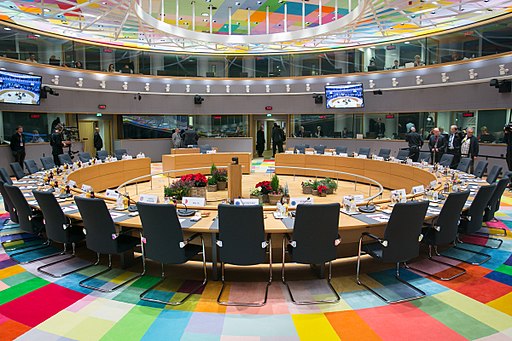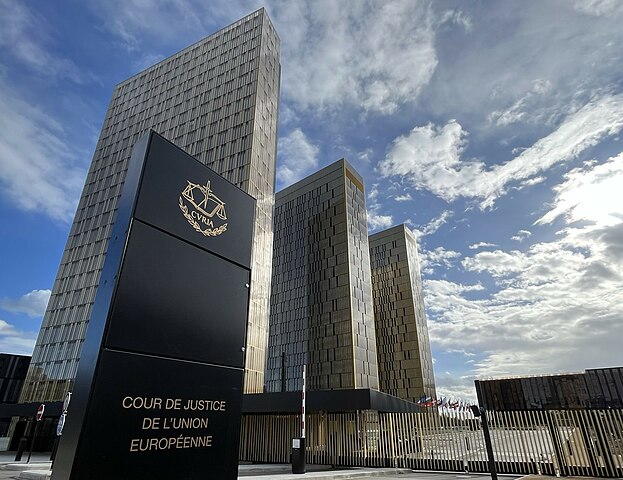English Across the Curriculum
The European Union
Institutions of the European Union
The European Council
The heads of state or government get together at least twice a year. They set the goals and rules of the community and discuss plans for the future. Every six months a different country serves as president of the union.

European Council Meeting in 2011
Source : https://www.flickr.com/photos/minister-president/5555966067/in/set-72157626347814212/
Author : Prime Minister of the Netherlands
The Council of Ministers
The Council of Ministers is the lawmaking part of the EU. It is made up of one representative from each of the member nations. The council decides how laws are made and agreements carried out. Most of the decisions that are reached here are unanimous.

Council of Ministers at the Europa Building in Brussels
Image: EU2017EE Estonian Presidency
[CC BY 2.0 (https://creativecommons.org/licenses/by/2.0)]
The European Commission
The European Commission is the executive branch of the EU. It is responsible for planning new laws and suggesting them to the Council of Ministers and parliament.
The commission makes sure that treaties of the union are carried out and rules are followed. There are 27 commissioners, one from each member state. Each of them is responsible for a certain area, like the environment, energy, transportation or farming.
They serve 5 year terms and must be approved by parliament. The president of the commission is thought to be the most important official of the European Union.

President of the European Commission : Ursula von der Leyen
Image: Etienne Ansotte, Attribution, via Wikimedia Commons
European Parliament
It is the only body of the EU that is elected directly by the people of the member countries. Every five years citizens in all member states elect a total of 785 MEPs (Member of the European Parliament). Countries with a large population like Germany, Italy, and France have more MEPs, smaller countries like Luxembourg have few MEPs. European Parliament is different from other parliaments because it cannot pass laws. It discusses the suggestions of the Commission and the Council of Ministers, but it must be heard by the lawmaking organs. The Parliament has the strongest powers in budget and money matters.

European parliament in session in Strasbourg
Photo by DAVID ILIFF. License: CC-BY-SA 3.0
The European Court of Justice
The ECJ runs the courts of the EU. It is located in Luxembourg and is made up of 28 judges who decide if the actions of the Commission, member states or private citizens comply with the rules of the EU. The court’s decisions are final and everyone, including governments, must follow them.
The European Central Bank
The European Central Bank controls the amount of money in the euro zone and tries to keep the euro a strong currency. The ECB was founded in 1998, its headquarters is in Frankfurt, Germany.

